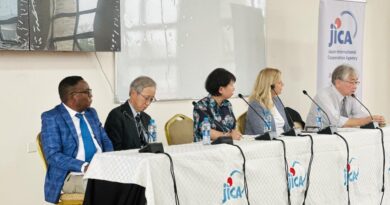$209M AfDB Strategy to Boost Lesotho’s Economy
The African Development Bank Group (AfDB) has approved a new $209 million Country Strategy Paper (CSP) for Lesotho, aimed at accelerating the country’s economic diversification, resilience, and inclusive growth over the next five years.
The strategy comes at a critical juncture for Lesotho, which faces major development challenges, including the impact of a 15 percent U.S. tariff on apparel exports, the loss of $300 million in Official Development Assistance from the cancelled Millennium Challenge Corporation compact, and heavy reliance on regional economic performance. Nearly half of the population lives in poverty, while youth unemployment hovers around 39 percent.
The new CSP prioritises unlocking private sector growth, creating sustainable employment, and building stronger institutions. It focuses on two main pillars: developing sustainable infrastructure to drive industrialisation and strengthening institutional and human capacity to enhance competitiveness. Key targets include achieving universal electricity access by 2030 through the Mission 300 programme, lowering broadband costs to support a burgeoning tech start-up ecosystem, and expanding access to safe drinking water.
Deputy Director General for Southern Africa and AfDB Country Manager for Lesotho, Moono Mupotola, said: “Lesotho stands at a critical juncture. This comprehensive strategy leverages the country’s abundant water resources, strategic location, and demographic dividend to unlock new pathways for inclusive growth and economic diversification.”
The Bank will also support agricultural and water infrastructure to boost productivity, modernise tax collection systems, and enhance public sector management through civil servant training programmes.
Policy reforms and infrastructure investments are designed to reduce the cost of doing business, promote entrepreneurship, and expand funding for digital innovation. Support will focus on startups and small businesses, particularly those led by women and youth. Skills development programmes are expected to equip 20,000 young people—including 40 percent women—with digital skills needed for the modern economy.
With Lesotho vulnerable to climate shocks, the strategy incorporates climate-smart agriculture, disaster risk management, and renewable energy investments. Initiatives also aim to tackle social challenges, including reducing child stunting, which affects over a third of children under five.
The CSP seeks to enhance Lesotho’s integration into regional markets by supporting cross-border infrastructure with South Africa, facilitating trade under the African Continental Free Trade Area (AfCFTA), and promoting participation in regional value chains, particularly agro-processing.
The strategy builds on lessons from previous Bank operations and aligns with Lesotho’s National Strategic Development Plan II (2018–2028), AfDB’s Ten-Year Strategy (2024–2033), the African Union’s Agenda 2063, and the United Nations Sustainable Development Goals. The Bank will leverage multiple financing windows, including the African Development Fund, the Regional Operations Window, and the Climate Action Window, while working closely with other development institutions to deliver results.



